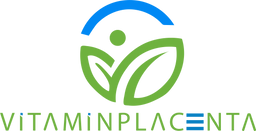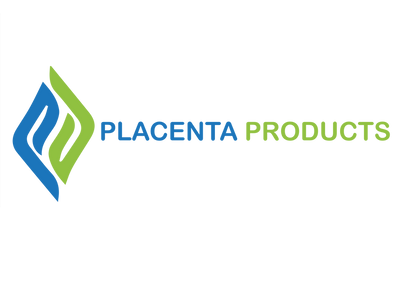Benefits of Placenta
Placentophagy (Eating Placenta)
There are many ways a woman can consume her placenta after childbirth, and the most popular method is placenta encapsulation. Pregnant women are becoming more aware of this "superfood" because of its rising popularity. What's more, is eating placenta good for you?
Placentophagy, or eating the placenta, is a common practice among animals. To keep their newborns safe from predators, non-human mammals with placentas usually eat their placenta, according to biologists.
According to other research, animals eat their placentas to replenish nutrients lost during delivery and to strengthen the bond between mother and child.
As a result of celebrities like the Kardashians eating placenta and endorsing the practice, placentophagy has grown in popularity among human mothers.

Purpose of the Placenta
The placenta is an organ that develops on the uterine wall during pregnancy and is connected to the fetus via the umbilical cord. In addition to serving as a vehicle for transferring nutrients and oxygen from the mother's blood to the growing baby, the placenta also acts as a filter for waste products in the baby's blood.
While the placenta shields the baby from the mother's immune system and produces hormones that aid in a healthy pregnancy, it also protects the baby from her own body.
The placenta is also delivered when a mother gives birth. A normal placenta delivery takes about 5 minutes, though it can take up to 30 minutes if the baby is delivered vaginally. However, the placenta will be removed during surgery if delivery is by cesarean section.
So, what happens to the placenta after delivery? Women can ask to keep their placentas, which are usually disposed of as medical waste in most hospitals and birthing centers.
Families in some cultures bury the placenta as a way of honoring and celebrating the life of their newborn baby. The practice of placentophagy has become increasingly popular among new mothers in recent years.

Why Do Women Eat placenta?
Women consume their placenta in various ways, including dried, powdered, and sealed capsules. If you're hesitant about seeing, touching, or tasting the "raw" placenta, taking a pill containing the dried placenta may be easier. A midwife may be able to help you with the preparation of the pills. On the other hand, heating it may negate some of the advantages.

What are the Effects of Placenta Consumption?
Since little research has been done on eating placenta, you don't know how you'll feel about the experience. Most women who eat placenta expect to feel better or better afterward. A variety of perspectives can be gleaned from online research or conversations with female users. However, they are based on anecdotal evidence, not hard data.
The story is about Brooke Brumfield’s placenta experience. Brumfield had heard from family and friends that eating the placenta could help with postpartum depression and anxiety. The results were unquestionably reliable in the eyes of the ladies. They reported an increase in milk production and their energy levels. Dropping hormone levels, they said, didn't feel as devastating.
Brumfield hired a doula who would steam, dehydrate, and pulverize her placenta for a fee before putting the fine powder into capsules. After the birth of her daughter, she took placenta pills for six weeks. She reported that they had a calming effect on her and made her less irritable and emotional. When her milk production began to decrease, she said, "I re-upped my intake and the problem was solved."

What are the Benefits of Eating Placenta?
History of Eating Placenta
The foundation of placentophagy (eating placenta) is found in a 16th-century text, a practice that is outside the realm of conventional biomedicine. China's most celebrated pharmacopeia, Compendium of Materia Medica, Bencao gang mu, was published in 1596 by Li Shizhen. It is considered the most important work in Chinese pharmacognosy, which is an academic discipline dedicated to the study of medicinal plants. This ancient medical system, which dates back millennia and is now practiced all over the world, refers to the term "placenta" in several of its standard reference books.
On top of his clinical experience, Li relied on anecdotes, poetry, and oral histories for inspiration. According to historian Carla Nappi's The Monkey and the Inkpot, a study of Li's life and work, his encyclopedia of the natural world is a "textual cabinet of natural curiosities." Li's book describes dried human placenta as a natural medicine that "invigorated people" and was used to treat impotence and infertility, among other ailments, and contains nearly 1,900 substances. Placentophagy advocates will find this book to be ethnomedical evidence of the practice's long-standing history, as well as its efficacy and safety.

Placenta Health Benefits
According to anecdotal evidence, eating the placenta has several health benefits for women, and researchers are investigating these correlations. The placenta is also rich in iron, vitamins B6 and B12, and reproductive hormones estrogen and progesterone, which are abundant during pregnancy but decline after childbirth, which may contribute to postpartum depression.
Advocates of placentophagy claim that it can prevent anemia, boost milk supply, regulate hormones, and reduce the risk of postpartum depression—but only when you eat your own or take other animals' processed placenta as a supplement. Placentas are not sterile, so there is a risk of disease if you eat another woman's placenta.

Benefits of Eating Placenta
There are many purported benefits of eating placenta, both for the mother and for the baby. Some of the benefits of eating placenta include:
- Aiding in the production of breast milk
- Preventing postpartum depression
- Reducing the risk of postpartum hemorrhage
- Reducing the risk of infection
- Promoting healing
- Increasing energy levels
- Boosting the immune system
- Providing micronutrients and essential fatty acids
- Preventing iron deficiency anemia
- Providing all the nutrients of a full meal

Benefits of Placenta for Postpartum Depression
The following are possible postpartum benefits of eating placenta:
- Increased energy, which aids in the treatment of postpartum fatigue
- increased milk production
- Reduced risk of postpartum depression due to improved mental health
- Reduction of insomnia
- Prevention of Anemia
- Postpartum hemorrhage reduction
- Pain reduction
- The immune system boost
- improved bonding with your newborn
Additionally, placenta supplements are being studied for non-pregnancy-related conditions, such as insomnia, anxiety, chronic pain, and issues with hormone regulation.
Protein, fats, minerals, vitamins, progesterone, and estrogen hormones are found in the placenta. Currently, scientists are trying to figure out how much of these nutrients and hormones are retained in the placenta and whether or not they have any effect at that concentration.

Is it Safe to Eat Placenta?
In the absence of large-scale studies, a few small studies have suggested Placental tissue, when cooked or encapsulated, is unlikely to contain enough nutrients to have a significant impact on health. Although little research has been done to determine whether or not reproductive hormones like estrogen survive placental processing, ingesting them after birth could affect milk supply and increase the risk of blood clots.
Even though the CDC advises against it, at least two important studies in 2016 suggest that it may be safe.
Placenta Encapsulation Benefits

Encapsulated Placenta
The contents of encapsulated placentas were examined in two studies in 2016. To begin, scientists looked at 28 nonsmoking placentas donated to expectant mothers. Researchers' initial goal was to determine which minerals were contained in the capsules. The researchers found that the placenta capsules contained one-fourth of the recommended daily iron intake for breastfeeding women. This serving size includes about three ounces of either chicken liver or canned sardines. There were only trace amounts of other minerals.
They found that all of the substances they tested for toxicity were safe. Because the placenta capsules do not contain any harmful ingredients, this is a good thing to know. Except for iron, the other micronutrients did not reach sufficient concentrations to affect your health. A separate study based on the same dataset examined the placenta capsules for hormones. 17 hormones were identified, 15 of which were found in all 28 placentas. In addition to progesterone, estradiol, cortisol, and aldosterone, they discovered testosterone. Low levels of progesterone and estradiol were found overall, but researchers noted that they could rise to a point where they have physiological consequences. These hormones, on the other hand, were never examined in this study. They wanted to see if the hormones were present, which they discovered they were.

Placenta Encapsulation
- It must be prepared in the safest manner possible. To avoid cross-contamination, cook or prepare the placenta carefully. Heating the placenta for at least two hours to 130 degrees F reduces Salmonella bacteria.
- Consider hiring a professional. Placenta capsules prepared by a professional with experience in placenta encapsulation can save you time and money. The placenta will be dried, powdered, and packaged in capsules for you to consume as a supplement. Consult with your OBGYN, midwife, or birth doula for recommendations.
- It is best to cook or freeze the placenta as soon as possible, as it can spoil fast (similarly to meat).
- If you experience any side effects, stop consuming the placenta immediately and consult with your caregiver.

Placenta Pills
Placenta pills can be consumed for the nutritional value they offer. For example, placenta is rich in vitamins and minerals and can help fill any deficiency in the body naturally, just like a multivitamin, except more natural. Placenta pills can also make eating the placenta more manageable since it would be compact, easy to consume, and ready for consumption. The scientific evidence of placenta encapsulation make it clear that most of the nutrients contained within raw placental tissue is still present if the placenta is prepared properly for encapsulation. The centers for disease control also stress proper preparation due to dangers such as group b streptococcus. This can be avoided though, if the placenta is encapsulated in a sterile environment.

Placenta Capsules
Placenta prepared in capsules are another form similar to placenta pills and made for easy consumption of placental tissue. The placenta capsules shield the recipient of any taste or smell, so the ingestion process is easy, quick and painless. Placenta capsules are beneficial for different mood disorders such as depression, anxiety, insomnia, and pain. Many of the benefits of placenta capsules are treatment of these symptoms, and it is commonly consumed to help alleviate those symptoms.

Placenta for Skin
Eating placenta is a good way to improve skin quality and appearance. Studies conducted in Japan have showed that placental consumption helps remove the appearance of wrinkles and fine lines so that the skin remains looking younger. Furthermore, placenta stimulates the production of collagen and improves elasticity of skin, helping reduce stretch marks and remove unwanted scars or scratches. Many people consume placenta to experience these benefits of placenta supplements. Others choose to eat placenta because it helps whiten skin and improve appearance so that it looks lighter in color. This is particularly common in Asian cultures, where light skin is commonly sought after, and placenta is well-known to provide this benefit.

Placenta for Hair
Hair loss is a problem for many people, and premature hair loss is known as alopecia, and is experienced by many people throughout the world. When placenta is consumed, different vitamins and nutrients within the placenta helps nourish hair and provide a treatment for hair loss. Placenta also encourages growth of new hair in areas where hair was lost before, a fact studied and proved in animal models. This was studied in both male and female rodents, further proving the benefits of eating placenta for men and women. Placenta can also strengthen hair overall due to the nutrient contents contained in placental tissue.
Placenta has been used in traditional medicine for centuries to treat various ailments, including hair loss. It contains nutrients that promote hair growth and prevent further shedding. There are several reasons why placenta is so effective for hair loss. First, it contains high levels of protein, amino acids, vitamins, minerals, and other nutrients that help stimulate hair follicles. Second, it helps to reduce inflammation and boost circulation. Third, it promotes cell regeneration and stimulates new hair growth. Fourth, it helps to strengthen hair follicles and improve blood flow. Finally, it supports healthy scalp skin.

Celebrities Eating Placenta
Placental consumption is popular among different celebrities for it’s health and beauty effects. Some celebrities that have openly talked about eating placenta include Kim Zolciak, Katherine Heigl, Kourtney Kardashian, January Jones, Kim Kardashian, Jenna Cooper, Crissy Tiegen, Mayim Bialik, Kailyn Lowry, Alicia Silverstone and much more! Celebrities eat placenta mainly in the form of pills, however placenta smoothies and other unconventional forms of consumption have also been seen. These celebrities mainly consume placenta in the form of pills or capsules to help them after the birth process for postpartum depression, however they also benefit from the beauty aspects of placental consumption such as benefits to skin and hair. Many celebrities have openly talked about the benefits they received, such as Kim Kardashian eating placenta then saying,
“I had great results and felt so energized and didn’t have any signs of depression! I definitely had to do it again. Every time I take a [placenta] pill, I feel a surge of energy and feel really healthy and good. I totally recommend it for anyone considering it!.” – Kim Kardashian
Buy Placenta Pills
Until now you had to be a celebrity to afford placenta encapsulation, or a woman about to give birth and have a doula waiting to prepare your placenta into capsules for consumption. However, now there are companies such as Placenta Products which openly sell placenta pills for men and women in the USA. These pills are made in a GMP facility and are ISO certified for safety, efficacy, and health standards.
Placenta pills are available now to men, yes men. The health benefits of placenta consumption can now be experienced by both sexes due to a new product designed with men in mind. Instead of using human placenta they use pig placenta, a source very close to humans in benefit, however much safer to consume. Pig was chosen instead of sheep or deer because it is both closest to humans, more effective, and has been considered as the “gold standard” for humans. This is apparent through many different medications for humans designed in pigs such as heart stents and thyroid medicine.
Placenta Culture
In recent years, there has been a resurgence of interest in the potential benefits of eating placenta after giving birth. The placenta is a temporary organ that connects the developing fetus to the mother's uterus and provides the fetus with essential nutrients and oxygen. After the baby is born, the placenta is typically discarded as medical waste.
However, some new mothers are now choosing to consume their placentas in an effort to improve their overall health and well-being. So what is the science behind why consuming the placenta can be beneficial for new mothers?

Mothers Eating Placenta
One theory is that consuming the placenta can help new mothers to replenish their iron levels, which can be depleted after giving birth. The placenta is a rich source of iron, and consuming it may help to prevent anemia and other health problems. The rise of the "placenta economy," according to scholars from Denmark and the United States, can be traced to a desire to be a "good" mother. New mothers are expected to take responsibility for their well-being and that of their children in this "neoliberal project of maternity."
Postpartum depression is on the rise, maternity leave policies are restrictive, and child care costs are sometimes incredibly expensive for new mothers. As a result, many women tend to seek help wherever they can find it. Treating postpartum depression is just one of the health benefits of eating placenta. Placenta can help with hair loss, improve skin appearance, reduce pain, treat anxiety and more! It is now apparent that the placenta is an amazing organ that can benefit anyone, from women to men across the world!

Safety Before Consideration
If you're interested in trying placenta eating, it's important to talk to your doctor first to make sure it's safe for you. And, if you do decide to go ahead, be sure to take things slowly and monitor your own reaction to see if it's having a positive effect.

References
- Young, S. M., Gryder, L. K., David, W. B., et al. (2016). Human placenta processed for encapsulation contains modest concentrations of 14 trace minerals and elements. Nutrition Research 36(8): 872-8.
- Young, S. M., Gryder, L. K., Zava, D., et al. (2016). Presence and concentration of 17 hormones in human placenta processed for encapsulation and consumption. Placenta 43: 86-9.
- Sharon M. Young.,Daniel C. Benyshek., In Search of Human Placentophagy: A Cross-Cultural Survey of Human Placenta Consumption, Disposal Practices, and Cultural Beliefs., Pages 467-484., 06 Nov 2010., https://doi.org/10.1080/03670244.2010.524106
- Placenta in TCM (Traditional Chinese Medicine)., https://placentaremediesnetwork.org/placenta-encapsulation/placenta-in-tcm/
- Kim Kardashian details, posted in this article: https://www.parents.com/pregnancy/everything-pregnancy/why-kim-kardashian-is-eating-her-placenta/



